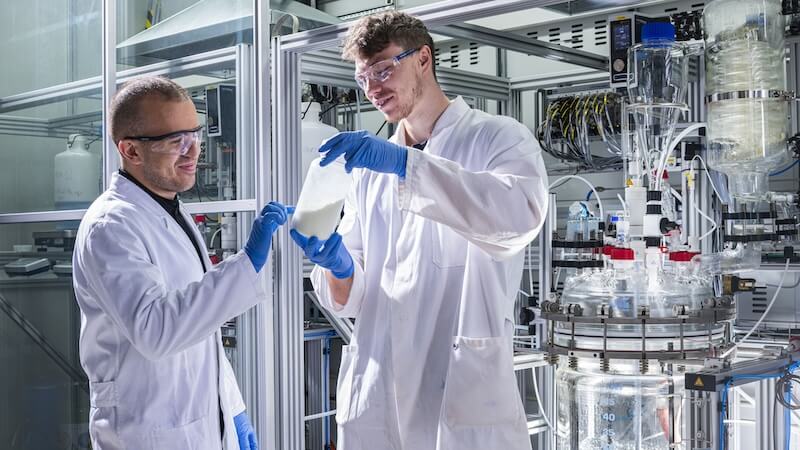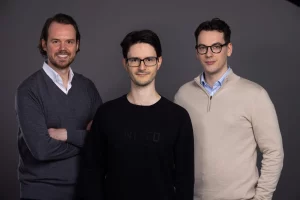
Researchers at the Karlsruhe Institute of Technology (KIT) have developed a new material called Preußisch Weiß that is intended to make sodium-ion batteries significantly cheaper. This could also affect the price of electric cars.
Energy storage is likely to continue to play a major role in the coming years. It's not just energy suppliers who need huge batteries to store solar energy. The need for energy storage and corresponding materials is also high in the e-car industry. The development of sustainable and cost-effective batteries is therefore a priority in many places.
The Karlsruhe Institute of Technology (KIT) recently presented a further development in the field of battery technology through its spin-off Litona. The start-up Litona produced the cathode material Prussian white for sodium-ion batteries. This is an environmentally friendly and cost-effective alternative to traditional battery materials.
New material: Prussian White makes sodium-ion batteries cheaper
Another advantage of the sodium-ion battery based on Prussian white is the absence of lithium or cobalt. The development could therefore make the use of batteries for stationary energy storage and electromobility significantly cheaper and more sustainable.
Prussian White is chemically related to the dye Prussian Blue and consists primarily of sodium, iron and manganese. This makes it suitable as an energy storage material for the cathode of a sodium-ion battery. According to KIT, such batteries are not only cheaper, but can also be produced from widely available raw materials.
Sodium-ion batteries could therefore meet the growing needs of the automotive industry. But the availability of Prussian White in Europe is considered a challenge. To counteract this, the researchers not only developed a new, high-quality cathode material, but also an innovative manufacturing process.
Sodium-ion batteries open up potential for manufacturing in Europe
The start-up Litona aims to supply the European market with this important battery material. The young company is also in talks with well-known investors from the tech scene. Litona used the KIT infrastructure for development. This was necessary to validate the scaling steps and optimize the material for use in next-generation batteries.
By building its own state-of-the-art production facility in Germany, Litona would like to highlight the potential of European battery production. Sodium-ion technology offers the chance for a new beginning in battery production and could reduce dependence on critical raw materials.
Also interesting:
Source: https://www.basicthinking.de/blog/2024/04/02/natrium-ionen-batterien-europa/


